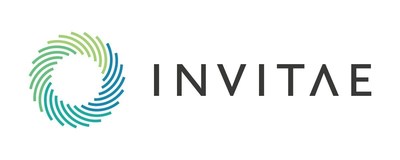Invitae opens early access to liquid biopsy-based Personalized Cancer Monitoring as a central laboratory service
Invitae Corporation (NYSE: NVTA) has launched early access to its Personalized Cancer Monitoring (PCM™) platform, a lab-developed test aimed at detecting circulating tumor DNA (ctDNA) earlier than conventional methods, thereby enhancing cancer recurrence detection. This innovative service combines tumor profiles, blood tests, and personalized assays. Invitae aims for full commercial availability later this year, with the platform significantly validating its sensitivity and specificity for detecting minimal residual disease (MRD), which could improve patient outcomes and treatment adjustments.
- Launch of the PCM platform could improve early cancer recurrence detection.
- Validation of high sensitivity and specificity for MRD detection enhances its clinical value.
- Potential to optimize treatment strategies based on earlier detection.
- Investors face uncertainty regarding the timing of full commercial availability.
- Historical losses and ongoing competition may impact financial performance.
Insights
Analyzing...
SAN FRANCISCO, June 3, 2021 /PRNewswire/ -- Invitae Corporation (NYSE: NVTA), a leading medical genetics company, today announced it has begun offering early access to its new Personalized Cancer Monitoring (PCM™) platform as a laboratory-developed test performed at an Invitae central laboratory. The service employs a novel combination of a tumor profile, blood tests and personalized assays based on a patient's tumor with the goal of detecting circulating tumor DNA (ctDNA) before it is detectable by imaging or other conventional methods, offering earlier detection of cancer recurrence.
"Far too many patients who undergo treatment for cancer still relapse, and the cause is often the development of new cancer cell populations. One promising strategy for identifying recurrence early is to detect these cancer cells persisting in a patient after treatment, known as minimal residual disease (MRD), that cannot be detected with standard monitoring such as imaging," said Robert Nussbaum, M.D., chief medical officer of Invitae. "PCM has the potential to determine a therapy's effectiveness much sooner than current monitoring methods, allowing clinicians to more efficiently refine and optimize treatment plans. In addition, patients whose cancer has been cured by tumor resection may be spared from unnecessary and potentially harmful adjuvant therapy, while those at risk of relapse can be diagnosed earlier and treated with the necessary therapies."
During the early access program, academic and pharmaceutical researchers will be able to utilize the pan-cancer, CAP-accredited and CLIA-certified PCM platform with testing and reporting completed by Invitae's recently acquired laboratory in Iselin, New Jersey. Full commercial availability of PCM as a laboratory-developed test is expected later this year.
PCM is a pan-cancer, tumor-informed, liquid biopsy assay developed by Invitae to detect MRD and monitor for cancer recurrence. Clinical researchers may have the ability to have residual disease and/or cancer recurrence detected earlier than the current standard of care for most patients. By detecting residual disease/recurrence earlier, patients can be considered for therapy sooner, which may result in improved outcomes.
PCM includes three basic steps: 1. A patient's surgically removed tumor or tumor biopsy and blood undergoes whole exome sequencing to create a patient specific tumor fingerprint. 2. Approximately 50 tumor-specific variants are selected for inclusion on a personalized ctDNA panel. 3. Patient-specific assays are created that can be used over time with minimally invasive blood draws to monitor for disease recurrence.
The platform is powered by Invitae's Anchored Multiplex PCR (AMP™) chemistry to perform error-corrected, next-generation sequencing. It is designed to identify traces of a patient's original tumor DNA circulating in a patient's blood, or ctDNA. Because ctDNA is a biomarker for MRD, AMP chemistry enables high sensitivity detection of MRD status. Detecting minute amounts of ctDNA while confidently determining MRD status may allow for earlier detection of relapse after treatment.
The high sensitivity and specificity of the PCM assay has been validated both in the laboratory and among NSCLC patients in the TRACERx study. Clinical validation studies will continue, as will the use of PCM to address research questions in support of meaningful clinical applications. Once more data become available in these important areas, PCM and other liquid biopsy approaches for monitoring MRD have the potential to become a mainstay in personalized oncology.
PCM could be applied in a variety of ways to help improve patient care and prolong survival outcomes. Its possible applications in the clinical setting include monitoring for recurrence, monitoring a patient's response to therapy to guide treatment decisions, and improving clinical trial designs to help get new therapies to market sooner.
About Invitae
Invitae Corporation (NYSE: NVTA) is a leading medical genetics company whose mission is to bring comprehensive genetic information into mainstream medicine to improve healthcare for billions of people. Invitae's goal is to aggregate the world's genetic tests into a single service with higher quality, faster turnaround time, and lower prices. For more information, visit the company's website at invitae.com.
Safe Harbor Statement
This press release contains forward-looking statements within the meaning of the Private Securities Litigation Reform Act of 1995, including statements relating to the potential benefits of PCM; the features of the early access program for PCM; the company's expectations regarding the timing of full commercial availability of PCM as a laboratory-developed test; the company's expectations regarding the continuation of clinical validation studies and the use of PCM in research; the potential for PCM to become a mainstay in personalized oncology; and possible applications of PCM. Forward-looking statements are subject to risks and uncertainties that could cause actual results to differ materially, and reported results should not be considered as an indication of future performance. These risks and uncertainties include, but are not limited to: the company's history of losses; the company's ability to compete; the company's failure to manage growth effectively; the company's need to scale its infrastructure in advance of demand for its tests and to increase demand for its tests; the company's ability to use rapidly changing genetic data to interpret test results accurately and consistently; security breaches, loss of data and other disruptions; laws and regulations applicable to the company's business; and the other risks set forth in the company's filings with the Securities and Exchange Commission, including the risks set forth in the company's Quarterly Report on Form 10-Q for the quarter ended March 31, 2021. These forward-looking statements speak only as of the date hereof, and Invitae Corporation disclaims any obligation to update these forward-looking statements.
Contact:
Laura D'Angelo
pr@invitae.com
(628) 213-3283
![]() View original content to download multimedia:http://www.prnewswire.com/news-releases/invitae-opens-early-access-to-liquid-biopsy-based-personalized-cancer-monitoring-as-a-central-laboratory-service-301304799.html
View original content to download multimedia:http://www.prnewswire.com/news-releases/invitae-opens-early-access-to-liquid-biopsy-based-personalized-cancer-monitoring-as-a-central-laboratory-service-301304799.html
SOURCE Invitae Corporation








